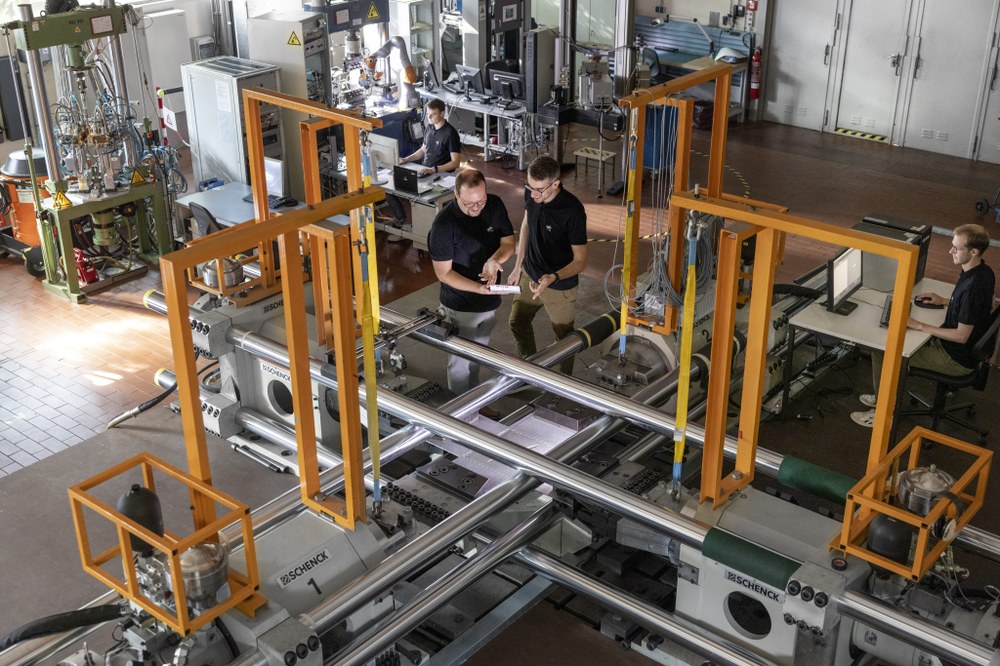Cross-Sectional Group: Mechanical Testing of Materials
Classic fracture mechanics studies according to ASTM, but also innovative, automated test procedures with cobot support and algorithm-based evaluation and data processing can be realized in collaboration with specialized departments (including the use of AI). Through collaboration with Central Microanalytics, comprehensive material characterizations, analyses, in-situ tests in the scanning electron microscope and microstructure simulations are possible. Measurements can be carried out under a wide variety of mechanical stresses and in a wide temperature range.
Materials testing laboratories
Our testing laboratories have universal testing machines, servo-hydraulic testing systems, DIC systems, temperature control units and hardness testing equipment. Special techniques and methods are developed for testing at extreme temperatures from -196°C up to 1400°C in order to reproduce operational conditions in the field of aerospace applications in the laboratory.
Application examples for material mechanical testing
In research and industry, high-quality material data is essential in terms of relevance, accuracy and reproducibility in order to bring new materials into use. This applies in particular to applications in aerospace and transport - but also in the areas of energy and security.
Material mechanical investigations in the institute:
- Quasi-static tensile, compression and bending tests
- Fatigue tests at room, low and high temperature conditions
- Crack propagation studies according to ASTM
- Uniaxial tests on classic samples as well as investigations under biaxial loads on cross samples with dimensions of up to 2.75m
- Hardness test according to Vickers, Brinell, Rockwell and Knoop
- Digital image correlation and classic strain gauges to determine sample deformation
- Construction and operation of special test benches according to the requirements of the projects and scientific questions
- Tests on previously stored / corroded samples under controlled conditions
- Tests in corrosive environments and extreme conditions (-196°C to 1400°C) possible
- Testing options exist for various metallic, hybrid, ceramic, polymer and also aerogel materials
If you would like to find out more about material mechanical testing, our options or our projects or are interested in working together, please contact us!
Contact
Janine Wischek

